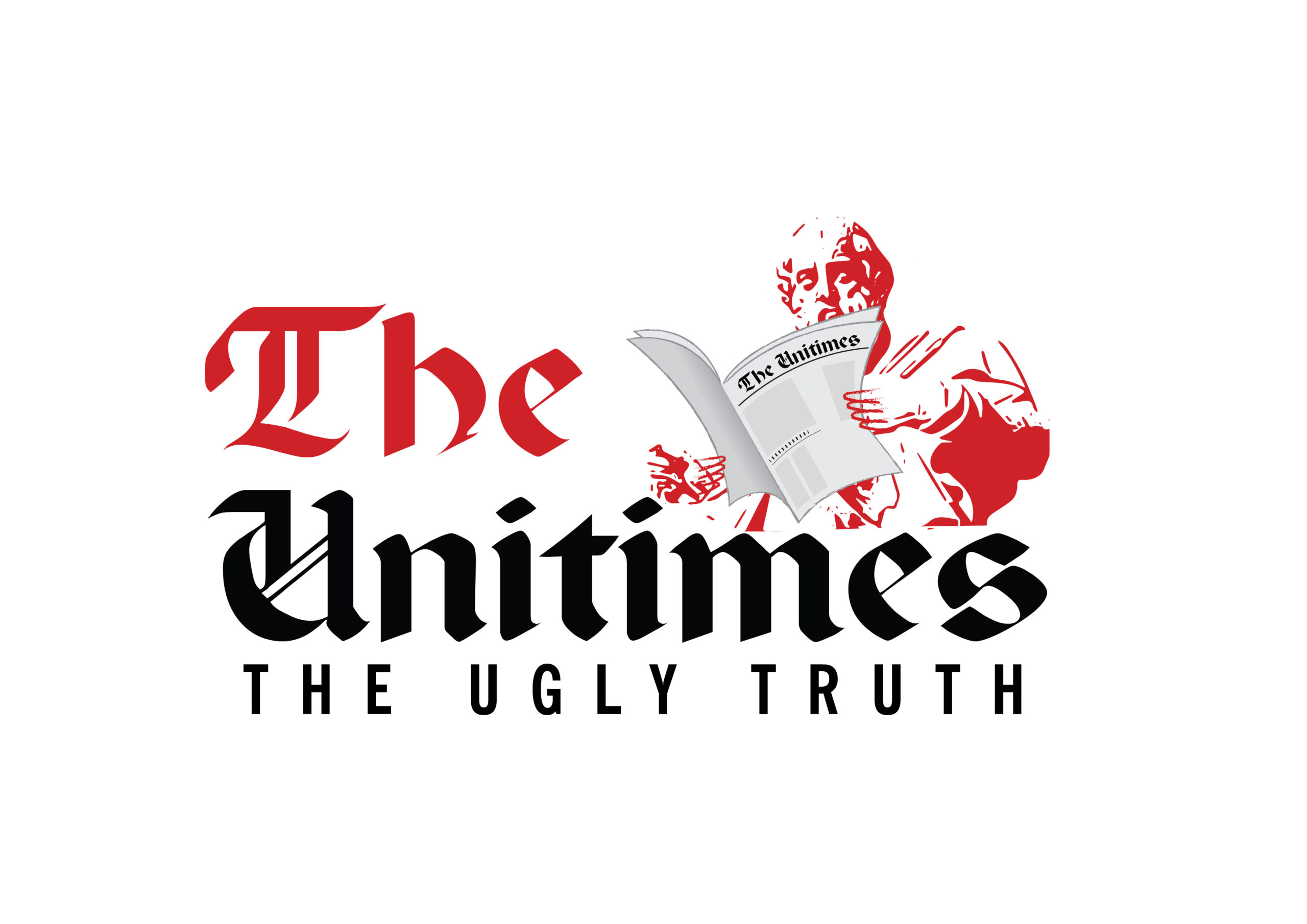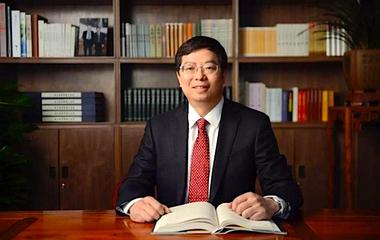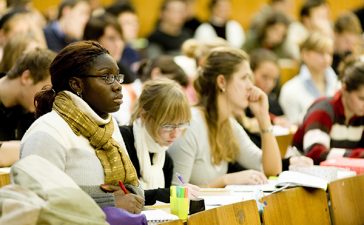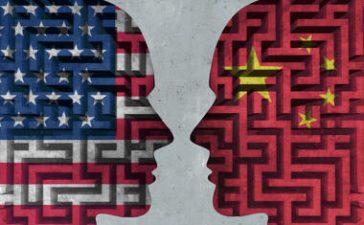As COVID-19 continues to spread around the world, an increasing number of countries and cities are in lockdown, more and more people are in isolation and observing social distancing. The outbreak of COVID-19 reminds us that we share a global community. It reminds us that we are living in a very uncertain world. Facing the pandemic, no one can manage alone or stand aloof.
COVID-19 has caused worldwide disruption, particularly in all levels of education. According to UNESCO’s statistics dated 26 March, more than 165 countries have implemented nationwide school closures, impacting 87% of the world’s total enrolled learners. Many universities have closed campuses and moved courses online. This indeed is unprecedented in history.
Since the establishment of the University of Bologna in 1088, universities have served as the physical and spiritual shelter for intellectuals. Some individual universities have temporarily closed, but never on such a large scale. The pandemic is a great challenge for us all. All nations, universities and individuals ought to address the pandemic as a community.
What is a university?
China was the first country to succumb to the COVID-19 outbreak and the first to announce local and national school closures. After deliberate consideration, on 30 January, Tsinghua University decided to start the spring semester courses online – on time and on schedule.
On 3 February, more than 57,000 Tsinghua students, faculty, staff members and alumni representatives attended a special lecture on Tsinghua’s epidemic prevention work and the arrangement of the spring semester via a live broadcast, attracting an audience of over three million.
Within two weeks, more than 2,600 faculty members attended training activities, with technical assistance from over 2,000 volunteers. Many Tsinghua faculty members had no experience or very limited exposure to online education before. They demonstrated strong commitment to the new mode of teaching. On 17 February, 3,923 courses began online as scheduled.
Deeply moved by the active response and sense of responsibility demonstrated by our faculty and students, a question emerged in my mind: What is a university?
This is a classical question raised by John Henry Newman in 1852. The ancient designation of university is Studium Generale or School of Universal Learning. This description implies professors and students from all parts coming together to study.
In this regard, universities create and assimilate knowledge from generation to generation; universities educate young people, empower them with knowledge and a sense of responsibility. These commitments made by universities help to sustain our culture and civilisation.
As we face this unprecedented global challenge, it is time to reflect on what makes a university great. Great universities should proactively respond to the challenges and shoulder their responsibilities at such times to demonstrate their commitment to society.
The essence of education is to empower the lives of students, with a prerequisite of ensuring their health and well-being.
Universities should make the safety and health of students, faculty and staff their top priority. After the outbreak of COVID-19, we took immediate action to make a campus safety plan in accordance with our emergency response framework.
On 23 January, the city of Wuhan went into lockdown. On the same day, Tsinghua University established 13 epidemic prevention task forces. We managed to maintain contact with every single student, faculty and member of staff in the Tsinghua community. No one was left behind.
The university’s hospital initiated emergency plans and set up fever clinics. Campus security levels were reinforced by applying strict restrictions on visitors and vehicles. Buildings were disinfected multiple times a day. We closely monitored the health of all students, faculty and staff. Quarantine facilities on campus for returning students and faculty were set up. Special assistance was also offered to students studying abroad and international students on campus.
The shift online
Another thing we prioritised was the idea that teaching and learning should not be undermined under any circumstances.
University education is neither spontaneous nor sporadic. Rather, it is a well-designed systematic programme carried out with comprehensive planning. Online teaching and learning are not supplementary for our education. We try our best to ensure that online courses have the same quality as in-person ones.
As of 17 February, Tsinghua commenced teaching all courses via the Rain Classroom and other platforms. The Rain Classroom is Tsinghua’s independently designed online learning platform, offering real-time interaction between teachers and students as well as an evaluation of teaching.
Teachers can use the Rain Classroom to create a courseware preview and check students’ status before class. Through the Rain Classroom, slides can be synchronised with WeChat – a popular messaging and social media app. Students take quizzes during the class and send their feedback and questions anonymously via the on-screen comments section.
Through our observations on the Rain Classroom, we noticed that compared to in-person classes, interactions between faculty and students have considerably improved online and students’ satisfaction with their courses has also been enhanced.
Professor William Rosoff from the School of Law of Tsinghua University delivered his online class from Indonesia. He noted that the system exceeded his expectations. “Remote teaching may lead to more student participation since students may be less shy speaking online than in the classroom,” Professor Rosoff said.
Extensive experiences and insights have been gained from our online education practices. For example, in-class interaction is very important not only for in-person classes, but also for online teaching and learning. The concept of community means a lot – faculty and students gather for knowledge sharing with a sense of collective identity and integrity.
Online teaching and learning with real-time interaction are the continuation of community building of universities. Though physical distance does exist, quality education can still be sustained and the university community reinforced.
Due to the unexpected outbreak, many students were not able to return to Beijing and had to spend extended periods of time at home. Limited ICT infrastructure presented immense obstacles for students in remote areas. Meanwhile, classes conducted over various time zones created challenges for international students who sometimes had to log in at midnight.
“Overall, it was a very good experience. There are students from all over the world and we could communicate clearly. Considering the very challenging times we are passing through, this seems to be a very good solution,” said Ana Paula Perrone Kasznar, a first-year graduate student from the Global Environmental Leadership Program, taking online courses from her hometown in Brazil.
In addition to online courses, we are also delivering innovative modes of thesis defence. By 22 March, 42 graduate students had finished their thesis defence online. Among them were 26 doctoral students and 16 masters students. Seven of the 42 students are international students from Canada, South Korea, Pakistan and the United States.
Epidemic prevention
Drawing on traditional strengths in academic research and innovation, universities can also play an essential role in epidemic prevention efforts.
Modern universities are characterised by academic research and innovation and have made indispensable contributions to the well-being of humankind. Based on its traditional strength in science and technology, Tsinghua swiftly initiated COVID-19 research projects.
Substantial progress has been made in basic medical research, vaccine research, fast testing kits as well as intelligent epidemic prevention systems and equipment. On 2 March, President Xi Jinping visited Tsinghua to inspect the School of Medicine’s research projects on COVID-19. During his visit, President Xi emphasised that “science and technology are the most powerful weapon in humanity’s battle against diseases”.
Professor Cheng Jing’s research group from the School of Medicine successfully developed the Respiratory Virus Nucleic Acid Detection Kit (Isothermal Amplification on Disk Chip), the first in the world to detect six types of respiratory virus simultaneously, providing patients with a quick and accurate diagnosis.
Soon after the approval from the National Medical Products Administration, the detection kits were donated to Hubei province and the government of Georgia in Europe.
Once the genome sequence of COVID-19 became available, the research group led by Professor Zhang Linqi from the School of Medicine initiated vaccine strategies to block the ‘key and lock’ interaction and to identify potent neutralising antibodies from infected and convalescent patients.
Professor Zhang and Professor Wang Xinquan from the School of Life Sciences successfully identified the structural relationship between virus and cell, as well as the precise target for vaccine design and development. Professor Zhang and his group have also isolated several potent human-neutralising monoclonal antibodies from recovered patients, providing candidates for antibody-based prophylactic and therapeutic interventions against COVID-19.
Professor Dong Jiahong from the School of Clinical Medicine led a task force that combines medical and new-generation information technology, which has developed a whole raft of intelligent epidemic prevention systems and equipment.
The task force has developed an infection self-assessment system for residents; a community intelligent epidemic prevention system which automatically reports the self-assessment result to the community centre terminal; an intelligent outpatient pre-screening and triage system; an artificial intelligence monitoring system for the rehabilitation population in the isolation area and artificial intelligence equipment, such as isolation ward robots and throat-swab robots for nucleic acid detection.
Social responsibility
Universities also need to demonstrate the aspiration of education by taking on social responsibilities at this time.
In May 2019, the Global Alliance of Universities on Climate (GAUC) was officially established at Tsinghua University, with 12 universities from nine countries as founding members. The GAUC charter states that “in response to global challenges presented by climate change, world-leading universities shoulder an extremely important role”.
Similarly, we believe that universities can also make indispensable contributions in the fight against COVID-19. Over the past two months, we have maintained close contact with other university leaders and global partners, exchanging best practice and providing mutual support. Meanwhile, we have been proactively taking on a wide array of social responsibilities.
Since the outbreak of COVID-19, Tsinghua has opened a series of online resources to the public, including more than 1,900 MOOCs (massive open online courses) on the XuetangX, China’s first and largest MOOC platform initiated by Tsinghua.
Meanwhile, Tsinghua has created ‘clone class’ courses to share online education resources with universities in Wuhan and other remote areas, including courses in English communication, engineering drawing and solid state physics, among other disciplines. The clone classes feature two identical classes, one in Tsinghua and the other in the sister school, with exactly the same course content, materials and assignments, taught by the same Tsinghua professor.
From 16 to 20 March, Tsinghua launched a large-scale online career fair with 126 universities in Hubei, inviting 621 employers to join the fair.
In addition, more than two million epidemic prevention items have been donated to Hubei province and other regions through the Tsinghua University Education Foundation.
Tsinghua alumni have also been proactively participating in epidemic prevention efforts. More than 180 alumni enterprises and 45 alumni associations donated over CNY810 million (US$114 million) and 130 batches of epidemic prevention items.
Enterprises affiliated to Tsinghua University have also made unique contributions to hospitals in Wuhan, donating masks and air cleaning equipment and providing network and security equipment to two makeshift hospitals.
In late January, a team of medical workers from Beijing Tsinghua Changgung Hospital, some of whom had clinical experience of SARS, accepted the call to join the front line in Wuhan to treat COVID-19 patients. Thousands of Tsinghua volunteers organised a diverse range of activities to support epidemic prevention efforts, such as providing free tutoring to children of medical workers on the front line, donating blood and conducting volunteer work in local communities.
Tsinghua’s Department of Psychology launched the COVID-19 Psychological First Aid programme, providing professional training and guidance for volunteers and one-on-one counselling.
The lighthouse of human civilisation
Infectious diseases know no boundaries and certainly have no nationality. In the face of this common challenge for humanity, we should unite instead of divide; we should be collaborative instead of combative. If we remain confident in ourselves and each other, the virus should not be feared.
Universities serve as the lighthouse of human civilisation inheriting knowledge and culture, as well as educating young talent. We share a common objective, which is to make the world a better place.
At this critical moment, universities should play an essential role in promoting confidence, trust and unity among people and collectively call for humanity to rise to its highest potential. Despite the uncertainties and challenges that lie ahead, there remains hope for a brighter future. Together, stronger.
Qiu Yong is president of Tsinghua University, China.







